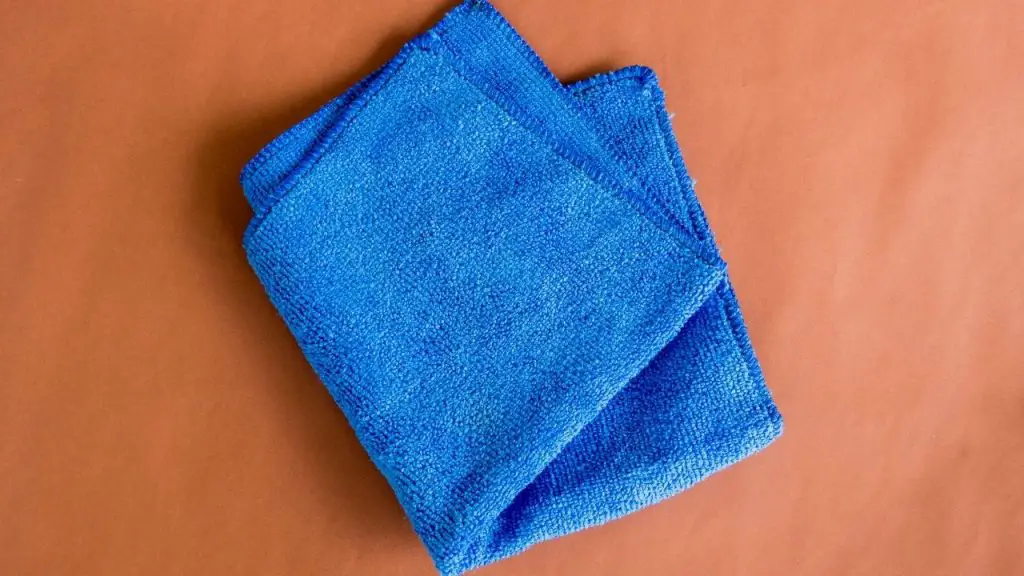Unfinished fretboards are fairly susceptible to drying out. And in truly humid climates, a fretboard left unsealed can begin to crack.
So, the job of fretboard oils is to prevent those cracks from ever appearing in the first place.
Now, a twice yearly dab of oil is all that’s needed to keep fretboards in tip top condition. But, what happens if you add a touch too much oil to that fretboard?
Well, in this post, you will find out just how frequently you should be oiling your fretboard. You’ll also discover which solvent can best remove excess oil from an over-oiled unfinished fretboard.

This post may contain affiliate links to products that we receive a commission for (at no additional cost to you). Learn more here.
Is Lemon Oil Good For Guitar Fretboards?
If it’s pure lemon oil, then no it is not, because lemon oil squeezed from the rind is acidic.
And if you put it on a finished fretboard, it will damage the finish. What’s more, it can even disintegrate the glue holding those individual frets.
But, the lemon oil that is sold as a fretboard oil is perfectly fine to use on unfinished fretboards. That’s because these lemon oil fretboard products are actually made from mineral oil.
Mineral oil is a highly refined form of petroleum distillate. And a few drops of mineral oil will ‘rehydrate’ a dry fretboard, preventing it from cracking and splitting.
Related Post: Should You Use Fretboard Conditioners Vs Lemon Oil?
And How Often Should You Oil A Fretboard?
Not too often, depending on the type of wood it is made from.
Fretboards made from wood types that are naturally oily, such as Rosewood, will rarely need an oil touch-up. At most, a Rosewood fretboard will need oiling every 1-2 years.
However, other unfinished fretboards, that don’t have natural oils safeguarding them, will need more frequent treatments. For example, an unfinished Maple fretboard would need oiling every 6-12 months.
Still, you don’t want to over oil a fretboard. Just a few drops of oil is all that’s needed…don’t saturate the wood with it.
Can You Over Condition Your Fretboard And Put Too Much Oil On?
Yes, you can. The wood can become saturated with oil, making that fretboard unplayable.
Fretboard oil is simply there to prevent wood from completely drying out. But, it should not be applied like a wood oil finish.
You see, the application of wood oil finishes (such as Tung oil), often requires putting on multiple coats.
Related Post: Tru-oil Vs Tung Oil: Which One’s Better For Your Guitar?
But, when it comes to fretboard conditioning oils, just a few stingy droplets are all that’s needed.
So What Do You Do If You’ve Over-Oiled A Fretboard?
Well, you have a couple of options. The first one is to try and blot away as much of the excess oil as possible. The second option is to try and break down the excess oil, and then blot it away.
- Use A Dry Microfiber Cloth To Soak Up The Oil
This should be your first port of call. There is nothing you can do about the oil that has already soaked down into the grain of that fretboard. However, any surface oil can be absorbed into the microfiber cloth.
But, the aim here is to blot up the oil — don’t wipe and smear it around further.

- Break Down The Oil Using Naphtha
If that fretboard is still very greasy to the touch, you can use a solvent to remove that excess oil.
Now, naphtha is commonly used in cleaning solutions and soaps. That’s because this solvent is very good at breaking down oily grime.
So, using a lint-free cloth that’s been dampened lightly with naphtha, run that cloth across that over-oiled surface.
You only need a touch of naphtha to cut through that excess oil. So, do not saturate the cloth (or your fretboard) with a naphtha solution.
Naphtha will strip away a fair amount of that oil. And once you’re done, leave the fretboard to dry for around 15-20 minutes.
It is also worth pointing out here that, using naphtha in this way, is going to dry out your fretboard. In which case, you can simply wait for the fretboard to dry, and then reapply a dab of fretboard oil.
Related Post: Can You Use Lemon Oil On Maple Fretboards?
To Wrap Up, Here Are The 3 Key Takeaways From This Post…
- 1). Fretboards don’t need frequent oiling. You only need to oil a fretboard around once a year (depending on the fretboards wood type).
- 2). If you’ve over-oiled your fretboard, try to absorb most of that oil by blotting it with a microfiber cloth.
- 3). If there is still too much oil on your fretboard, you can use a dab of naphtha solvent to break down the excess oil.



